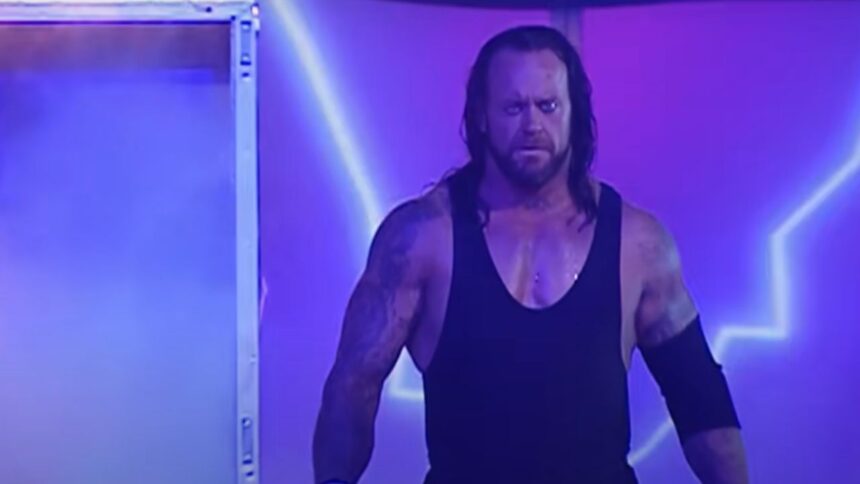In the world of entertainment, where portrayal is an art, even the legends of the wrestling ring are not immune to the occasional gripe. Recently, The Undertaker, an icon in his own right, shed light on his less-than-pleased reaction to his depiction in the popular series “Young Rock,” chronicling the early life of Dwayne “The Rock” Johnson.
As “Young Rock” unfolded the tapestry of Johnson’s formative years within a wrestling dynasty, it inevitably cast a wide net, encompassing various luminaries of the squared circle. Among them stood The Undertaker, a figure synonymous with mystique and intensity. However, it seems the portrayal did not quite meet the Deadman’s approval.
In an exclusive Q&A session on Patreon, The Undertaker candidly expressed his dissatisfaction, particularly with one glaring detail – his hat. Yes, you heard it right. It wasn’t the storyline or characterization that irked the legendary wrestler; it was the choice of headwear. Describing it as a “black clown hat,” The Undertaker made it clear that this sartorial misstep did not sit well with him.
Yet, amidst the jest, there lies a deeper sentiment. Wrestling, at its core, is a fusion of drama and athleticism, where even the most serious characters can find themselves bathed in the spotlight of comedy. The Undertaker’s remarks offer a glimpse into the complexities of portraying larger-than-life personas, where even the smallest details can carry significance.
Perhaps, in jesting about recasting The Rock as “Urkel or somebody,” The Undertaker highlights the absurdity of the situation, infusing humor into his critique. And while his displeasure over a mere hat may seem trivial, it underscores the importance of authenticity and respect in the portrayal of wrestling’s storied history.
The Undertaker’s playful jab at the idea of recasting iconic wrestlers like The Rock in unconventional roles serves as a lighthearted reminder of the reverence that should be afforded to wrestling legends and the characters they have portrayed. By invoking the image of The Rock as “Urkel or somebody,” The Undertaker playfully challenges the notion of tampering with established personas and the risks of diluting the authenticity of wrestling’s rich tapestry.
Moreover, The Undertaker’s seemingly trivial complaint about a hat serves as a metaphor for the broader issue of respecting wrestling’s history and traditions. While it may appear insignificant on the surface, the symbolism of such details is not lost on those who have dedicated their lives to the industry. For The Undertaker and others like him, preserving the integrity of wrestling’s past is a matter of principle, representing a deep-seated commitment to honoring the sacrifices and contributions of those who came before.
In essence, The Undertaker’s comments serve as a gentle reminder to approach wrestling’s history with care and reverence, recognizing the importance of authenticity and respect in preserving the legacy of the sport. While delivered with a hint of humor, his message carries a weighty significance, reminding fans and creators alike of the importance of upholding the traditions and values that have shaped wrestling into the beloved spectacle it is today.
So, did The Undertaker’s disdain for his fictional headwear lead to real-life repercussions in the wrestling ring? Some might speculate. After all, in the unpredictable world of WWE, alliances shift like the sands of time. But whether his “hatred” for the hat played a role in his WrestleMania showdown with The Rock remains a matter of conjecture, adding yet another layer of intrigue to the rich tapestry of wrestling lore.
In the end, perhaps The Undertaker’s grievances serve as a reminder that even in the realm of make-believe, authenticity reigns supreme, and a hat is never just a hat.
Stephen’s Value: In the realm where reality blurs with fiction, The Undertaker’s critique of his portrayal in “Young Rock” offers a fascinating insight into the nuances of wrestling storytelling. Beyond the spectacle of the ring, lies a world where even the smallest details can carry weight, reminding us of the importance of authenticity amidst the theatrics of sports entertainment.




